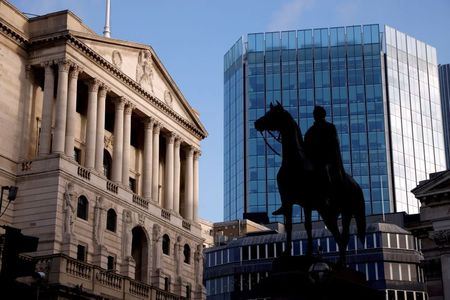City looks to Bank of England for clues on inflation battle plan

The City will be looking for any clues illuminating how the Bank of England plans to tackle inflation in today’s Monetary Policy Committee meeting minutes.
The BoE is expected to leave interest rates unchanged for now.
Latest CPI data shows inflation is running higher than the Bank’s two per cent target. Prices surged 2.1 per cent annually in May, the highest rise for two years.
“Market watchers will be looking for any signs as to when [the Bank] could start reducing quantitative easing and raise interest rates” says Russ Mould, AJ Bell investment director.
The Bank will also make its latest interest rate decision at noon today – they are expected to hold the benchmark rate at 0.1 per cent. The scale of bond purchases under the Bank’s quantitative easing programme is anticipated to remain unchanged.
Today’s MPC minutes have been brought into even sharper focus after the US Federal Reserve published forecasts indicating it may raise rates in 2023 – much earlier than initially forecast.
Michael Hewson, chief market analyst at CMC Markets UK, says: “In light of recent events and the slight shift in the Federal Reserve’s stance… today’s Bank of England meeting could have the potential to mark a similar shift in timing with respect to the withdrawal of its own monetary policy emergency measures.”
The City will be watching to see if the Bank follows suit.
The Bank’s Governor, Andrew Bailey, has signalled they are keeping a watchful eye on price rises, indicating monetary policy could tighten abruptly if inflation persists.
Expectations that the Bank may react sooner rather than later are gathering momentum.
“Bailey has made clear the MPC won’t tolerate above-target inflation for long”, says Neil Wilson, chief market analyst at Markets.com.
But, key figures within the Bank have argued that any measures taken to tame inflation may now come too late. Departing chief economist Andy Haldane has called for tighter monetary policy after a stronger than expected economic rebound in the UK.
Some experts have brushed off a string of sharp price rises in the UK, US and Europe as purely transitory, highlighting that supply chain constraints caused by the pandemic will ease once the normal functioning of the global economy is restored.
However, severe labour shortages and surging factory costs may prompt firms to raise prices to maintain margins, suggesting inflation may prove to be much more sustained than initially predicted.
The City will be eagerly awaiting the Bank’s battle plan.
Read more: UK inflation jumps to 2.1 per cent in May as clothing and fuel prices rise